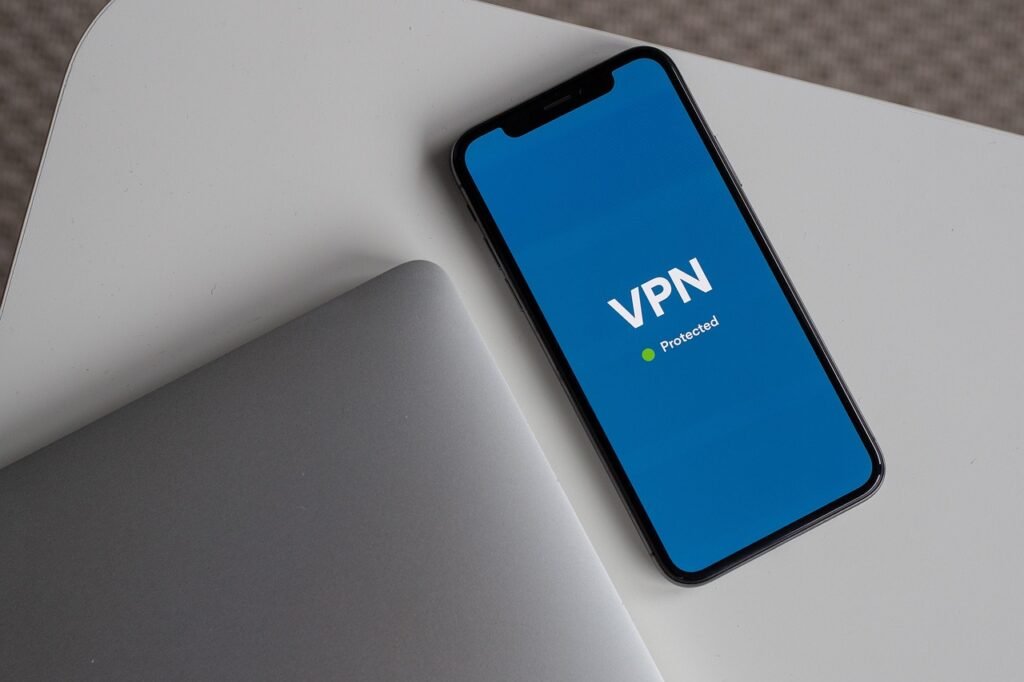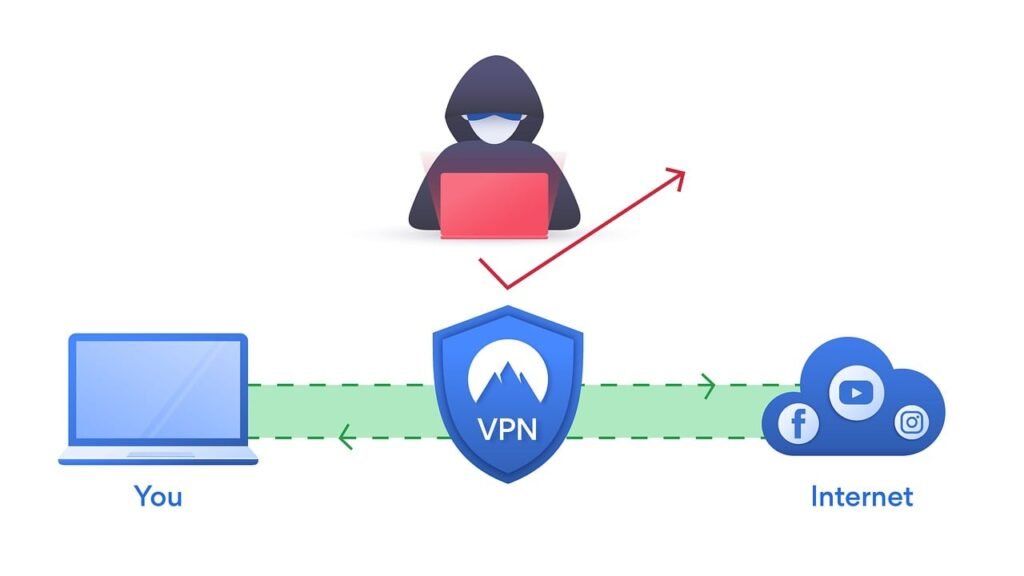Internet Security has never been more critical. With the growing number of threats online, it’s essential to protect your data, your privacy, and your devices. This guide will walk you through everything you need to know about ensuring the security of internet in 2024, from understanding common cyber threats to learning best practices for staying safe online.
Understanding the Importance of Internet Security
Why Internet Security is Essential in the Digital Age
In today’s hyper-connected world, virtually everything we do is online—from banking to shopping and communicating with others. With this level of convenience comes a heightened risk of exposure to malicious actors. Security of internet is no longer just a concern for businesses but for everyday users too. A single breach could compromise personal data, financial information, and even your identity.

Growing Cybersecurity Threats in 2024
The threat landscape evolves every year, and 2024 is no exception. New methods of hacking, phishing, and malware attacks have emerged, making it essential to stay updated on how to defend yourself. From ransomware to advanced AI-driven attacks, these threats can affect anyone at any time.
Common Cybersecurity Threats
Malware and Ransomware Attacks
Malware is malicious software designed to damage, disrupt, or gain unauthorized access to systems. Ransomware, a subset of malware, locks users out of their systems until a ransom is paid. Both can cause significant harm to individuals and businesses alike, making them one of the most pressing issues for security of internet.
Phishing and Social Engineering Attacks
Phishing involves tricking users into providing sensitive information, often by masquerading as a trustworthy entity through email or text messages. Social engineering goes one step further by exploiting human psychology to manipulate users into divulging confidential data. The best defense against these attacks is education and awareness.
DDoS (Distributed Denial-of-Service) Attacks
In a DDoS attack, hackers overwhelm a server with traffic, causing it to crash. These attacks can shut down websites, disrupt online services, and damage a company’s reputation. DDoS attacks are increasingly common and are a significant threat to the security of internet.
Man-in-the-Middle Attacks
A Man-in-the-Middle (MitM) attack occurs when a hacker intercepts the communication between two parties. This can happen on unsecured Wi-Fi networks or through compromised websites. Encryption and secure connections can help mitigate these risks.
Key Components of Internet
Security firewalls: The First Line of Defense
A firewall monitors and filters incoming and outgoing traffic on your network. It acts as a barrier between your device and malicious traffic. Ensuring you have a robust firewall is a fundamental step in enhancing the security of internet.
Antivirus Software: Protection from Malware
Antivirus software is designed to detect, block, and remove malicious software. Regular updates ensure that your antivirus is equipped to deal with the latest threats. Many modern solutions now offer additional features like phishing protection and network security.
Encryption: Securing Data Communication
Encryption scrambles data so that only authorized parties can read it. Whether you’re sending emails, making online payments, or simply browsing, encryption is vital for protecting sensitive information.
Virtual Private Networks (VPNs): Protecting Privacy Online
A VPN masks your IP address and encrypts your internet traffic, making it difficult for hackers or third parties to track your online activity. VPNs are essential for ensuring the security of internet, especially when using public Wi-Fi.

Two-Factor Authentication (2FA): Strengthening Access Control
2FA adds an extra layer of security by requiring not just a password, but a second form of verification, like a code sent to your phone. This makes unauthorized access much harder and strengthens the overall security of internet for individuals and businesses.
Best Practices for Enhancing Internet Security
Regular Software Updates and Patch Management
Outdated software is a common entry point for cybercriminals. Always update your operating system, apps, and antivirus software to close any vulnerabilities that hackers might exploit.
Using Strong, Unique Passwords
Weak passwords are easy to guess or crack. Use long, complex passwords and avoid reusing them across multiple accounts. Consider using a password manager to keep track of them.
Secure Browsing Habits: Avoiding Suspicious Websites and Downloads
Never click on links from unknown sources, and avoid downloading files from shady websites. Malicious websites are a leading cause of malware infections.
Internet Security for Businesses
Network Security Solutions for Enterprises
Businesses, especially those handling sensitive data, need robust network security solutions like firewalls, intrusion detection systems (IDS), and virtual private networks (VPNs). These solutions help safeguard the security of internet within a corporate environment.

Employee Education and Training
A well-informed workforce is a company’s best defense against cyber threats. Regular training sessions should be held to educate employees on recognizing phishing emails, avoiding malicious downloads, and following proper internet security protocols.
Implementing a Comprehensive Cybersecurity Policy
Every business should have a detailed cybersecurity policy outlining the steps employees need to take to ensure the security of their digital environment. This should include password policies, remote work security, and breach response strategies.
The Role of Internet Service Providers in Ensuring Security
ISP Security Measures
Many Internet Service Providers (ISPs) offer security services like anti-malware and spam filtering. These can be an added layer of protection for both personal users and businesses.
How ISPs Combat DDoS and Other Attacks
ISPs play a crucial role in managing large-scale cyberattacks like DDoS. They have the infrastructure and bandwidth to mitigate these attacks, ensuring continued service and protecting users.
The Future of Internet Security
AI and Machine Learning in Cybersecurity
Artificial Intelligence and Machine Learning are revolutionizing cybersecurity by detecting threats faster and more accurately than traditional methods. These technologies will continue to play a significant role in the security of internet in the coming years.
Quantum Computing and its Implications for Internet Security
Quantum computing could break existing encryption methods, but it also holds promise for creating even stronger security protocols. This shift could radically change the future of internet security.
The Legal Side of Internet Security
Key Internet Security Laws and Regulations
Several laws govern the security of internet, such as the General Data Protection Regulation (GDPR) in Europe and the California Consumer Privacy Act (CCPA) in the United States. These regulations help protect user data and ensure companies are held accountable for security breaches.
The Role of GDPR and CCPA in Internet Security
Both GDPR and CCPA require companies to take stringent measures to protect user data. Failure to comply can result in hefty fines, making compliance a significant aspect of internet security for businesses.
The Importance of Personal Responsibility in Securing the Internet
How Users Can Take Control of Their Own Internet Security
While governments and businesses are responsible for enforcing internet security measures, individual users must also play their part. Keeping your devices updated, using strong passwords, and avoiding risky online behavior are essential steps in securing the security of internet on a personal level.
Cyber Hygiene: Simple Steps to Stay Safe Online
Practice good cyber hygiene by backing up your data regularly, monitoring your online accounts for suspicious activity, and using security tools like VPNs and antivirus software.
Tools and Resources for Securing the Internet
Top Antivirus Software Solutions
Popular antivirus solutions like Norton, Bitdefender, and Kaspersky provide comprehensive protection against malware and other threats. Regularly updating your antivirus software ensures you’re protected against the latest threats.
Best VPNs for Secure Browsing
Top VPN services like NordVPN, ExpressVPN, and CyberGhost help protect your privacy and secure your internet connection, making them essential for ensuring the security of internet.

Password Managers: Why They Are Crucial
Password managers like LastPass and 1Password allow you to generate and store complex passwords securely. This minimizes the risk of weak or reused passwords, a critical step in securing your accounts.
How to Recover from Internet Security Breach
Steps to Take After a Cyberattack
If you’ve fallen victim to a cyberattack, immediately disconnect from the internet, change your passwords, and run a full antivirus scan. Contact any affected services and inform them of the breach.
Restoring Data and Rebuilding Security
In the event of a data breach, ensure that backups are used to restore compromised files. Re-evaluate your security protocols and consider additional measures like encryption and two-factor authentication to avoid future incidents.
Conclusion: Why Proactive Security of Internet Is Non-Negotiable
The security of internet is a shared responsibility between individuals, businesses, and governments. With evolving threats in 2024, it’s more important than ever to stay vigilant and adopt best practices for protecting yourself and your data online. Whether through personal responsibility or using advanced tools like VPNs and encryption, taking proactive steps to secure your internet usage is non-negotiable in today’s digital world.
FAQs
1. What is the importance of internet security in 2024?
Internet security is critical for protecting personal data, financial information, and privacy in an era where cyber threats are constantly evolving.
2. How can individuals secure their online activities?
Individuals can secure their online activities by using antivirus software, VPNs, strong passwords, and staying vigilant against phishing and malware attacks.
3. What role do firewalls and VPNs play in internet security?
Firewalls block unauthorized access to networks, while VPNs encrypt internet traffic to protect privacy, making them essential tools for enhancing the security of internet.
4. What are the most common cyber threats in 2024?
Common threats include malware, phishing attacks, ransomware, DDoS attacks, and social engineering schemes.
5. How does AI influence the future of internet security?
AI and machine learning enhance internet security by detecting threats faster, automating defenses, and predicting potential vulnerabilities.